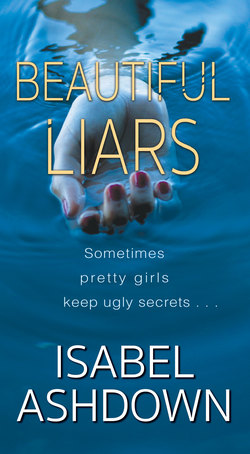Читать книгу Beautiful Liars - Isabel Ashdown - Страница 8
На сайте Литреса книга снята с продажи.
ОглавлениеA Death
It wasn’t my fault.
I can see that now, through adult eyes and with the hindsight of rational thinking. Of course, for many years I wondered if I’d misremembered the details of that day, the true events having changed shape beneath the various and consoling accounts of my parents, of the emergency officers, of the witnesses on the rocky path below. I recall certain snatches so sharply—like the way the mountain rescue man’s beard grew more ginger toward the middle of his face, and his soft tone when he said, “Hello, mate,” offering me a solid hand to shake. Hello, mate. I never forgot that. But there are other things I can’t remember at all, such as what we’d been doing in the week leading up to the accident, or where we’d been staying, or where we went directly afterward. How interesting it is, the way the mind works, the way it recalibrates difficult experiences, bestowing upon them a storybook quality so that we might shut the pages when it suits us and place them safely on the highest shelf. I was just seven, and so naturally I followed the lead of my mother and father, torn as they were between despair for their lost child and protection of the one who still remained: the one left standing on the misty mountain ledge of Kinder Scout, looking down.
I can see the scene now, if I allow my thoughts to return to that remote place in my memory. I watch myself as though from a great distance: small and plump, black hair slicked against my forehead by the damp drizzle of the high mountain air. And there are my parents, dressed head to toe in their identical hiking gear: Mum, thin and earnest, startle-eyed, and Dad, confused, his finger pushing his spectacles up his florid nose as he interprets my gesture and breaks into a heavy-footed run. Their alarmed expressions are frozen in time. There is horror as they register that I now stand alone, no younger child to be seen; that I’m pointing toward the precipitous edge, my eyes squinting hard as I try to shed tears. There are no other walkers on this stretch of path, no one to say what really happened when my brother departed the cliff edge, but the sharp cries of distress from the winding path far below suggest that there were witnesses to his arrival farther down.
It wasn’t your fault, it wasn’t your fault, it wasn’t your fault. This was the refrain of my slow-eyed mother in the weeks that followed while she tried her best to absolve me, to put one foot in front of the other, to grasp at some semblance of normality. “It wasn’t your fault,” she’d tell me at nighttime as she tucked the duvet snugly around my shoulders, our eyes never straying to the now-empty bed inhabiting the nook on the opposite side of my tiny childhood room. “It was just a terrible accident.” But, as I look back now, I think perhaps I can hear the grain of uncertainty in her tone, the little tremor betraying the questions she will never voice. Did you do it, sweetheart? Did you push my baby from the path? Was it just an accident? Was it?
And, if I could speak with my mother now, what would I say in return? If I track further back into that same memory, to just a few seconds earlier, the truth is there for me alone to see. Now at the cliff edge I see two children. They’re not identical in size and stature, but they’re both dressed in bright blue anoraks to match their parents—the smaller with his hood tightly fastened beneath a chubby chin; the bigger one, hood down, oblivious to the sting of the icy rain. “Mine!” the smaller one says, unsuccessfully snatching at a lemon sucker held loosely between the older child’s dripping fingers. This goes on for a while, and on reflection I think that perhaps the sweet did belong to the younger child, because eventually it is snatched away, and I recall the sense that it wasn’t mine to covet in the first place. But that is not the point, because it wasn’t the taking of the sweet that was so wrong but the boastful, taunting manner of it. “No!” is the cry I hear, and I know it comes from me because even now I feel the rage rear up inside me as that hooded child makes a great pouting show of shedding the wrapper and popping the yellow lozenge into its selfish hole of a mouth, its bragging form swaying in a small victory dance at the slippery cliff edge. The tremor of my cry is still vibrating in my ears as I bring the weight of my balled fist into the soft dough of that child’s cheek and see the lemon sucker shoot from between rosy lips like a bullet. “No!” I shout again, and this time the sound seems to come from far, far away. Seconds later, he’s gone, and I know he’s plummeting, falling past the heather-cloaked rocks and snaggly outcrops that make up this great mountainous piece of land. I know it is a death drop; I know it is a long way down. I can’t say I remember pushing him—but neither can I remember not pushing him.
So you see, I’m not to blame at all. From what I recall of that other child—my brother—he was a snatcher, a tittle-tattle, a crybaby, a provoker. Even if I did do it, there’s not a person on earth who would think I was culpable.
I was seven, for God’s sake.
